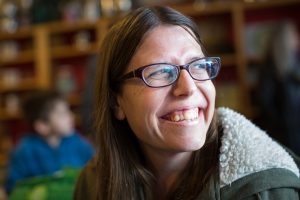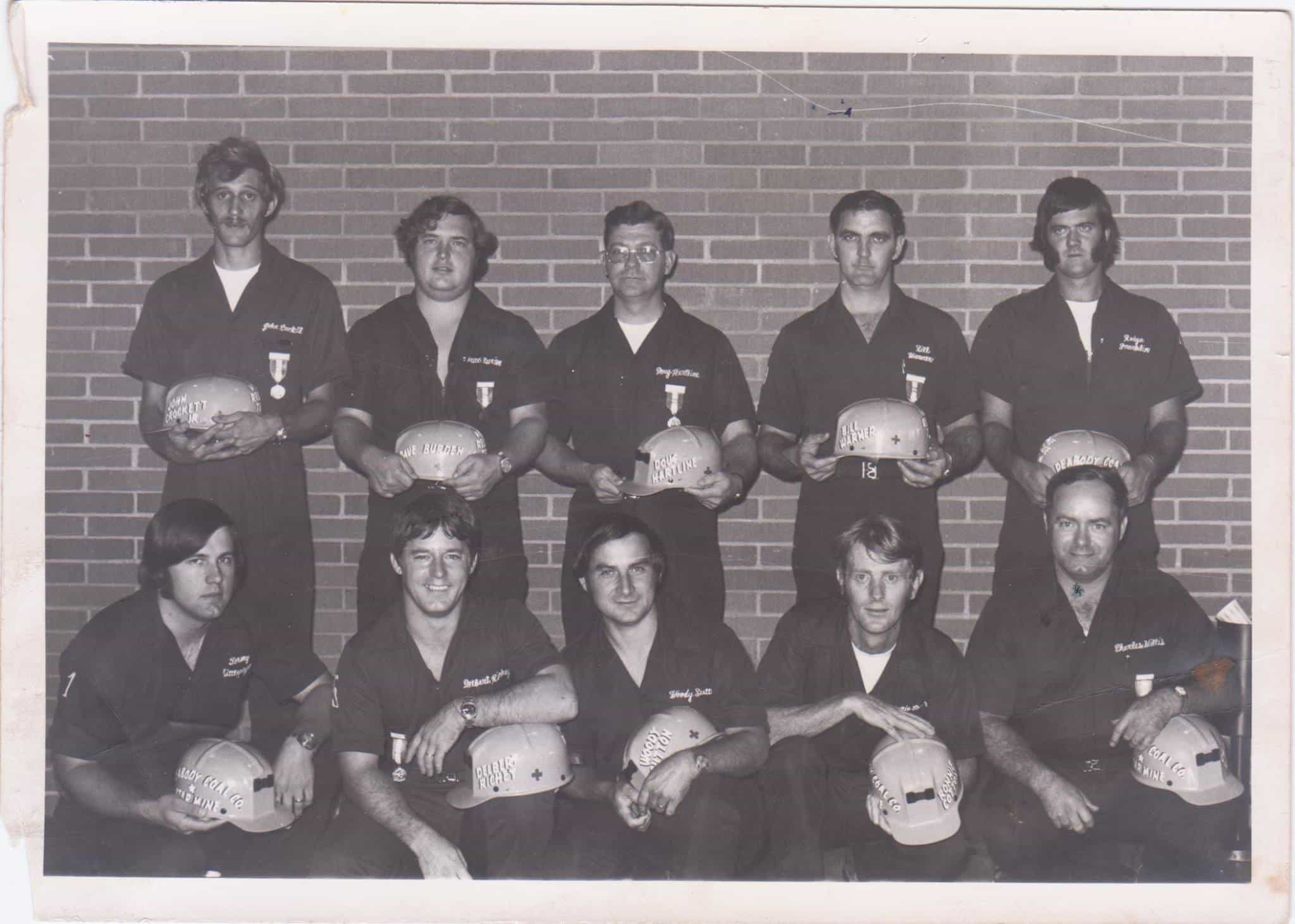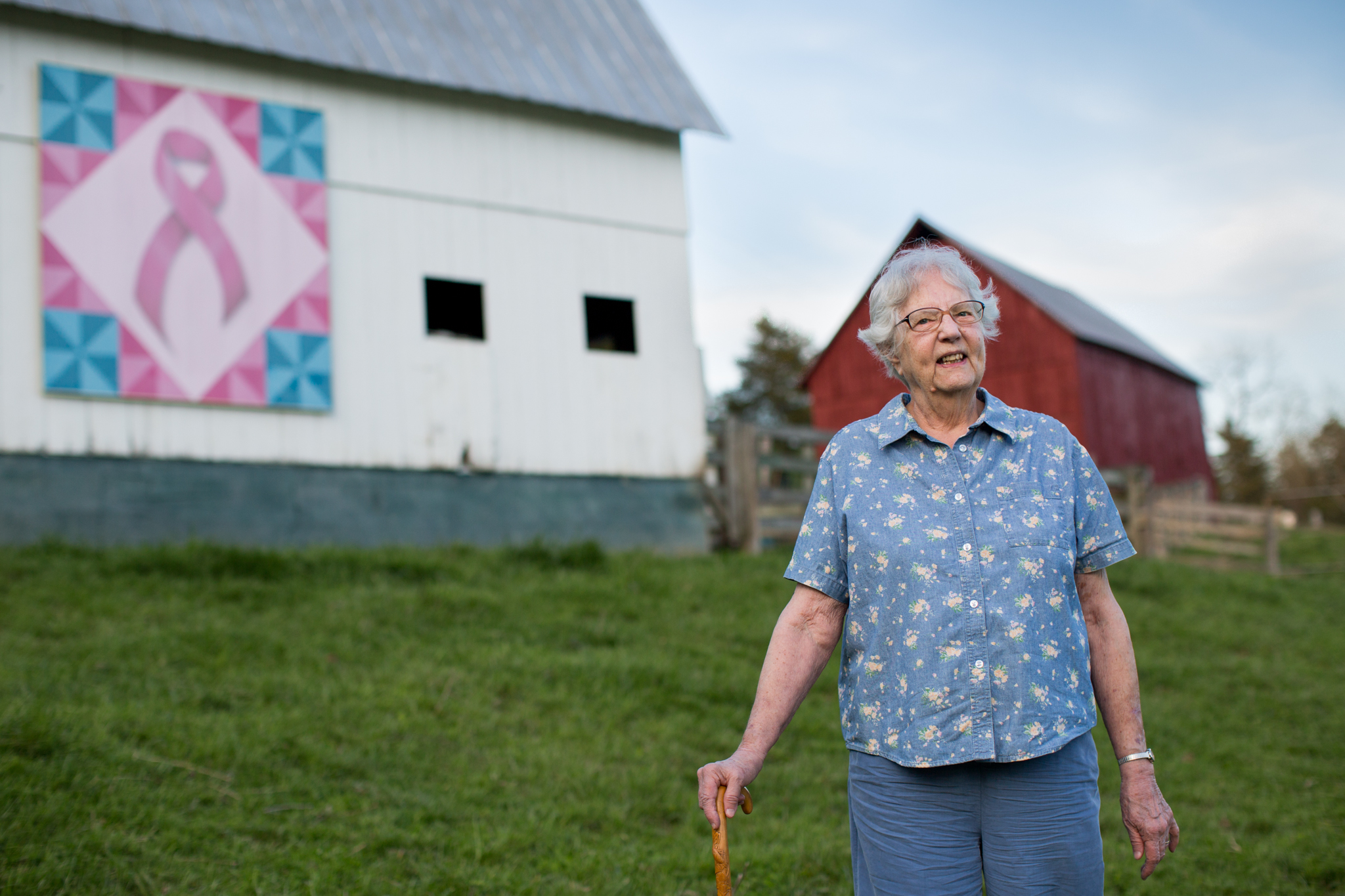There are lots of people out there that don’t like the direction that we’re heading. — Mike Vincent
April Vincent: Education should prepare somebody to go out and live independently in the world and hopefully have a fulfilling life — take care of themselves and their needs and their family, not just personal means. To have a quality of life and find what you’re passionate about, explore connections with other people and hopefully becoming a force of good in the world. That’s what a contributing member of society should be doing. To be able to connect with another human being beyond a place of fear, is sort of an essential survival skill.
The election of Donald Trump made me feel very let down, both in the political process where he clearly did not have the majority of votes and still became president. It’s the situation that we’re in that we could elect someone with such obvious and apparent moral shortcomings, I found devastating.

The recent election cycle I found personally devastating. I am 39, about to be 40. I’m a mom. I have an eight-year-old and a five-year-old, and I have a lot of hope for them. I have a lot of hopes for people as an educator. I serve a lot of students. I’m an art teacher in two local schools. I won’t tell students what candidate I favor in any election. I think in the work place you have to be professional and I’m not at work trying to push my political opinions on anyone. I feel like the school I work at and the county I work for, everybody has the best interests of the students in mind, and that transcends any political affiliation.
Mike Vincent: As a counselor, I work with students every day. I try to promote acceptance, a sense of hope, moving forward and a sense of inclusion. What I worry is that the new administration does not advocate for that. I feel like we’ve been moving in that direction for the past eight years and I worry that we’re going to start moving in the other direction. That’s my fear.
I would like to see some continued progress on issues of inclusion and acceptance. I feel like the past administration made a lot of progress in terms of LGBTQ communities being accepted and my fear is I don’t expect that to continue. I’m trying to be hopeful that the progress that has been put in motion can’t be turned back, but I do worry. As far as expectations — I’m honestly not sure what to expect. Trying not to expect the worst.
Overall I try not to engage in political conversations at work, but inevitably it comes up. I have had some good conversations with folks and try to be open and listen to their take on things. I think people feel frustrated, particularly in West Virginia, about the lack of jobs and about poverty. I understand that. A lot of the folks here that supported Trump, that’s what they responded to. They feel like he’s going to change that and give them some hope and a way to move forward that they don’t really have now. I don’t personally believe he’s going to do that, but I do understand that’s where their support comes from.
It’s my home state. I feel like there’s an impression that West Virginia did vote for Trump very strongly, but as with anywhere there are all kinds of people here. Many of the people who did vote for Trump are not uneducated. They’re responding to the circumstances here.
As an educator, I am worried about the direction we’re going as far as public education. Betsy Devos can push for vouchers and charter schools. I really worry what that’s going to do to public education. I think public schools are already struggling and it’s going to potentially add another major struggle.
People are interested in getting involved and trying to push back against some of the direction that we’re going. So that feels hopeful to me. Whether that will make a difference I don’t know, but it feels hopeful. There are lots of people out there that don’t like the direction that we’re heading.
April and Mike Vincent were photographed at the Wild Bean coffee shop in Lewisburg, West Virginia. April, 39, is an educator, Mike, 40, a school counselor. The couple says they believe their views are different from many of their peers in the community.
In ‘100 Days, 100 Voices’ Nancy Andrews presents photographs depicting the diversity of voices across Appalachia. These portraits strive to show the varied faces, passions, issues and opinions from around the region. These interviews have been edited for brevity and clarity. If you have an idea for ‘100 Days, 100 Voices’ please contact Nancy Andrews on Twitter @NancyAndrews or email at nancy.andrews [at] mail.wvu.edu. Follow her on Instagram @NancyAndrews.



